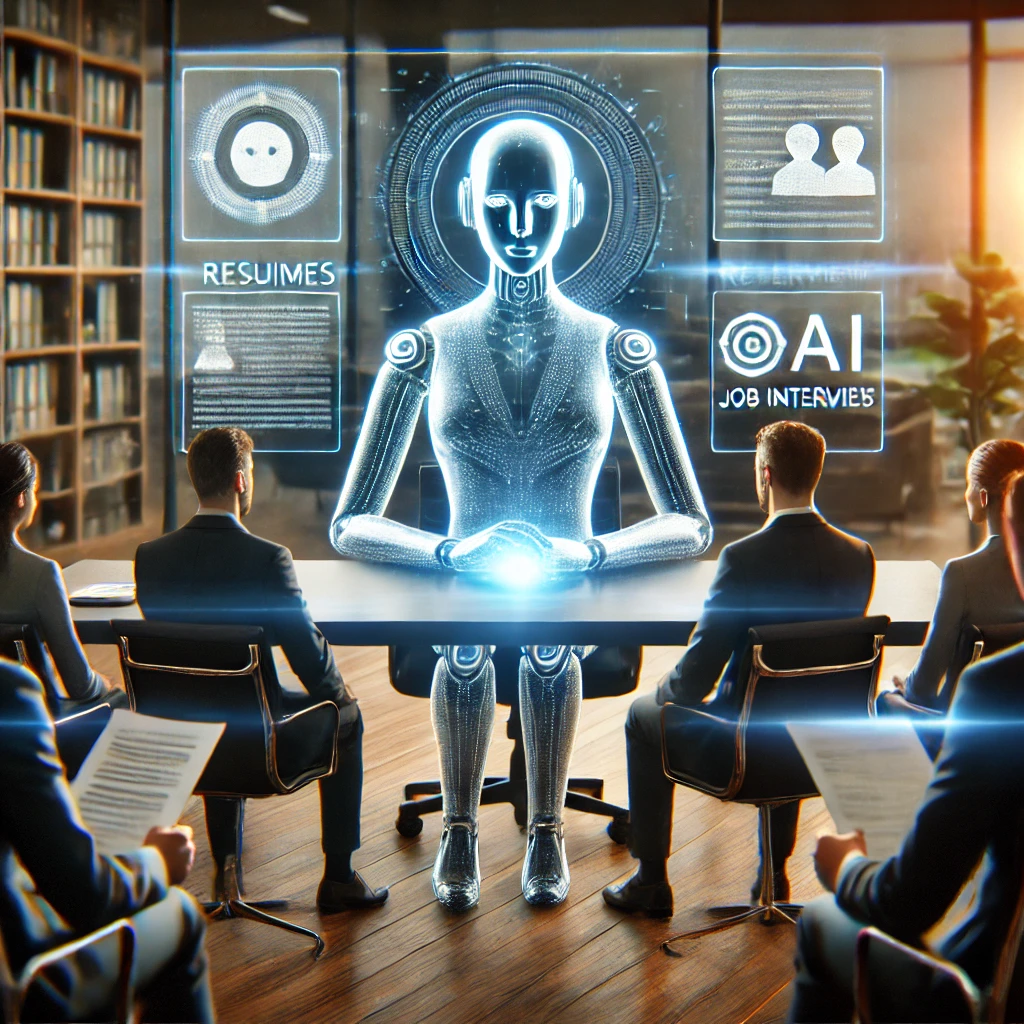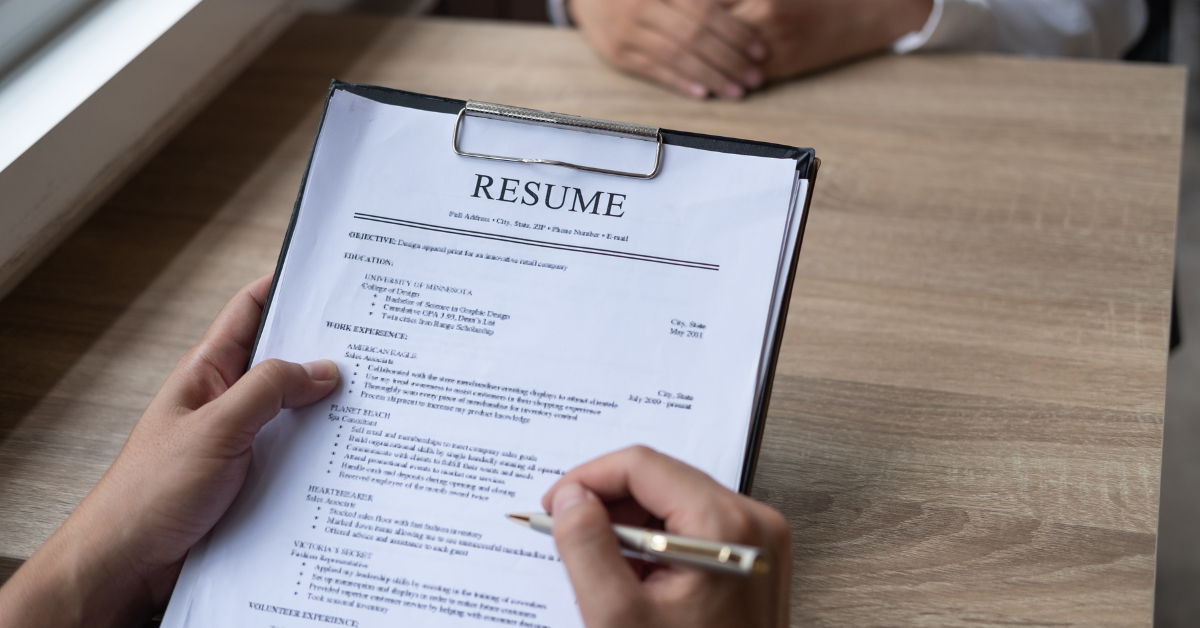Did you know that AI in hiring is transforming the recruitment process? It allows companies to evaluate applicants faster and more efficiently. However, issues like bias and fairness create serious ethical concerns.
But do AI-driven recruitment algorithms inherit human biases, or are they truly impartial? As AI becomes more integrated into recruitment, the debate over fairness keeps growing.
For example, AI can conduct initial interviews, assess talent, and analyze resumes. Yet, studies show that without proper development and monitoring, AI may unintentionally discriminate against certain groups.
This is why accountability and transparency are so important in fair hiring practices.
In this article, we explore AI bias in hiring, transparency issues, legal challenges, and solutions for ethical use. By understanding these aspects, companies can adopt fairer and more inclusive hiring practices, helping to provide equal job opportunities for young people.

Firstly: Can AI in hiring be truly fair?
How AI in hiring reflects human bias
Despite its advanced capabilities, AI in employment is only as fair as the data it learns from.However, AI may unintentionally reinforce biases from past hiring decisions. For example, if historical data favors candidates from specific backgrounds or universities, the AI model may select them more often, reducing diversity.
Examples of AI bias in recruitment
Many companies have had problems where AI accidentally treated some groups unfairly.For instance, in a well-known case, an AI recruitment system rated resumes lower if they included terms linked to women.
This highlights the need to follow ethical AI guidelines to prevent unintended bias in hiring decisions.
The challenge of defining fairness in AI hiring
But what does fairness mean in AI-driven recruitment? Should AI treat all candidates equally, or should it correct past inequalities?In this context, AI ethics play a key role in creating systems that not only comply with legal standards but also promote inclusivity and equal opportunities.
Secondly: Benefits and Risks of AI in Hiring
The efficiency of AI in hiring
One major benefit of AI in recruitment is its ability to process thousands of applications within minutes. As a result, it significantly reduces hiring time.Because AI makes hiring faster, employers can speed up the process. However, if they rely only on AI, it may miss qualified candidates who don’t fit set criteria.
The risk of hidden unfair treatment
Despite this advantage, AI can still be affected by hidden biases. For instance, some AI recruitment systems have been found to harm less-represented backgrounds or favor male candidates over female ones.To address this issue, companies must follow strict AI ethics rules and conduct regular audits to ensure equal treatment.
Balancing automation and human judgment
While AI makes hiring faster, human supervision is still important. So, recruiters should use AI as a helpful tool instead of relying on it completely for decisions.By combining AI with human judgment, companies can achieve both speed and fairness in recruitment.
Thirdly: Transparency and Accountability in AI in Hiring
The problem of non-transparent AI
A major issue with AI in hiring is the lack of transparency. For example, many AI recruitment tools function as black boxes, making it unclear how decisions are made.As a result, these tools raise concerns about fairness and accountability, especially if candidates are unaware of the evaluation process.
Holding companies accountable for AI bias
Companies must take responsibility for AI in hiring to ensure ethical recruitment practices.Additionally, they can maintain fair standards by conducting regular audits, running bias tests, and training HR teams on ethics.
By doing so, the hiring process becomes more fair and transparent.
Providing transparency for applicants
On the other hand, AI-driven hiring decisions should be clear to candidates.Moreover, applicants should understand why they were rejected. This way, trust between employers and candidates improves, leading to a better hiring experience.
Fourthly: Legal and Ethical Considerations in AI in Hiring
Compliance with anti-discrimination laws
Currently, governments are making sure of tougher rules to ensure that artificial intelligence in recruitment follows fair treatment laws.Therefore, employers must ensure that AI recruitment tools follow these rules. By doing so, they can avoid legal issues and maintain ethical hiring practices.
The role of ethical AI development
On the other hand, creators must add AI ethics into recruitment systems from the start.This approach allows them to create more fair hiring tools that reduce unfair treatment by finding bias and using diverse training data.
Government regulations on AI in hiring
As more companies use artificial intelligence, the need for rules in recruitment increases. That’s why governments around the world are making laws to ensure clarity in AI-based hiring.With these actions, hiring programs can support fairness instead of adding bias.
Fifthly: Solutions for Fair AI in Hiring
Using Bias Detection Techniques
To ensure fairness in recruitment, adding bias detection methods to AI in the workplace is one of the effective ways.These techniques enable companies to address potential biases before they affect actual candidates.
In addition, analyzing hiring choices helps reveal bias patterns and take the necessary actions to correct them.
Training AI in Hiring with Diverse Data
To avoid bias in recruitment decisions, artificial intelligence must be trained on diverse datasets to ensure real fairness.For example, by including applicants from different backgrounds, it is possible to ensure a fairer review of applications.
Thus, artificial intelligence reduces the likelihood of favoring one category over another.
Educating HR Teams on AI Ethics
On the other hand, HR departments must understand the ethical consequences of AI-based hiring.Therefore, training programs on AI ethics can help recruiters use AI responsibly. In this way, the hiring process can be enhanced rather than replaced.
Sixthly: The Future of AI Ethics in Hiring
Developing Fair AI Algorithms
To make AI better in employment, researchers are creating programs that reduce unfairness. So, fairness, responsibility, and variety will be important rules in future hiring systems.
Strengthening AI Regulations
As AI use increases, governments keep making stricter rules to keep things clear and fair.As a result, companies will have greater responsibility in using AI in recruitment, helping to achieve greater fairness in the workplace.
Ethical AI as a Competitive Advantage
To attract top talent, companies need to adopt fair hiring practices. For this reason, organizations that use ethical AI are becoming more appealing to job seekers.Ultimately, companies can gain a competitive advantage by applying strong ethical standards in hiring.
To sum up, AI in hiring is changing the recruitment process, bringing both chances and challenges.
On one hand, AI in the workplace boosts efficiency. On the other hand, it raises concerns about bias and unfair treatment.
Therefore, companies can set up open, fair, and inclusive recruitment practices by giving importance to AI ethics.
In this way, AI-driven recruitment decisions can be both effective and just. In the end, keeping a balance between technology and human supervision is important for making the workplace fairer.
Do you use AI in hiring? Share your experience in the comments and discuss the best practices for fair employment!







 2025-03-26
2025-03-26
 2023-05-23
2023-05-23
 2023-03-22
2023-03-22
 2023-03-08
2023-03-08
 2023-03-02
2023-03-02